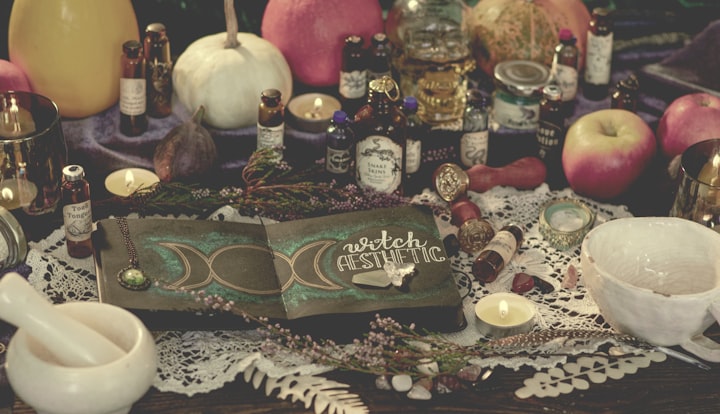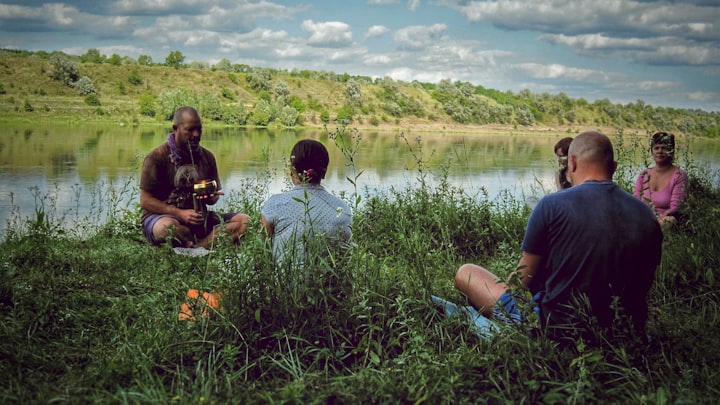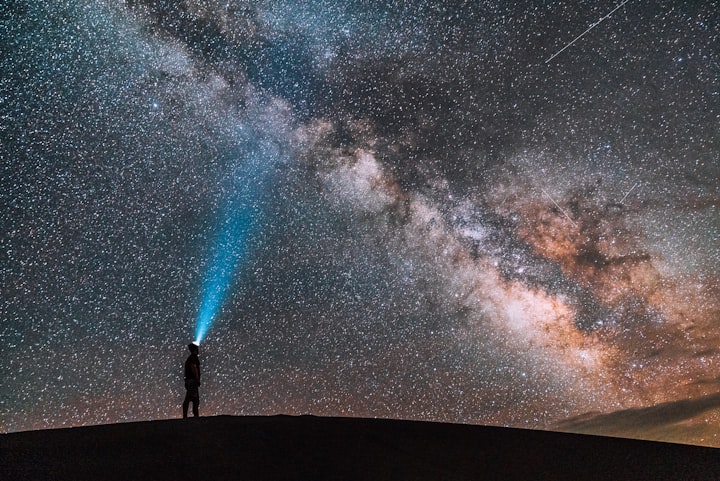Presenting Paganism To a Generation of Spiritual Explorers
Younger Americans, known for shaping their own spirituality the way they curate their social media feeds, do so using established alternative practices.

Heather Greene published a new article in the Religion News Service which reads Study: Gen Z Doubles Spirituality, Combining Tarot and Traditional Beliefs. It deals with a study by the Springtide Research Institute that says:
Younger Americans, known for shaping their own spirituality the way they curate their social media feeds, do so using established alternative practices.
Here is a longer quote:
“Our generation has already distanced itself from many institutions,” wrote Zaina Qureshi, a 16-year-old who identifies as both Muslim and spiritual. “The three main Abrahamic religions leave little to our own interpretation of the Holy Scriptures.”
Using tarot and other similar practices, Qureshi said, “We are open to interpreting what we want to think (for) ourselves and making our own guidelines on spirituality, which is why I think many young people will find it resonating. ”

This should not come as a surprise to any religious student. People have practiced divination and other forms of magic in the context of established religions since established religions existed. How do we know? Against all the rules. You don’t have to try to ban something that nobody does. Unless you’re a politician trying to take advantage of your base’s conspiracy theories (see: Voter Fraud, Late Abortions, etc), but that’s another curse word for another time.
The place of magic within religions that preach against it is an interesting topic. But as a pagan, I’m more interested in the people who leave Christianity and Islam – and atheism – for our magic-affirming traditions.
Our many varieties of paganism and polytheism are not social clubs, political parties, or marketing agencies. We do not proselytize. At the same time, we want our values to grow in mainstream culture. More importantly, we welcome those who are looking for what we have – even if they don’t already know. The gods call whom they call, but often these calls are weak and difficult to obey.
How do we welcome those who expect to “establish their own guidelines”? How do we balance the obligation to keep our sacred traditions with the obligation to be hospitable to those who simply cannot tolerate being told what to believe or what to do?
Understand what is negotiable and what is not
Would you like to draw a circle at the beginning of a ritual? Great – I usually do. Do you think rituals are better without circles? That’s fine too. I am a member of two orders of druids. OBOD throws circles – ADF does not. I encourage you to think through your liturgy and make conscious decisions about what to include, but at the end of the day, circle casting is completely optional for me.
Would you like to have a public midsummer ritual and not honor one or more deities? I’m not going to help you run this. Honoring the gods is the core of my religion. We can talk about who to honor and how best to honor them, but involving the gods is non-negotiable for me.
That doesn’t mean I won’t work with non-theistic pagans where we have a common cause. But I cannot remove the gods from my religion to make someone feel comfortable.
We don’t all have the same non-negotiable things. Know what yours are so that you know where to let go in the name of welcoming and inclusive and where to draw a sharp, clear line.
Provide a sturdy foundation
This is perhaps the most important thing we can offer seekers and spiritual discoverers. Most of them are not looking for a place where they can do what they want – they don’t need religion for that. They are looking for a place – a group, a tradition, a culture – where they fit. Our job is to help them find out if they fit paganism (or rather, a certain form of paganism). If they do, great. If not, then you’ve learned something, which is also great.
(The following book links are my affiliate links that go directly to Amazon.)
This is one of the reasons for the book The Path of Paganism. It starts at the beginning with what religion is and why it is so much more than what our Protestant-dominated mainstream culture claims. It encompasses the foundations of modern paganism and the four centers of nature, gods, self, and community. And it goes into depth on various forms of pagan practice.
Honestly, when people are just starting out I usually recommend Morgan Daimler’s Irish Paganism (even if you’re not Irish or interested in Ireland). It’s a better 101 book – The Path of Paganism is more like a 201 book.
If we give people a good foundation of what paganism is and what it isn’t, they’ll be better able to find out whether they want to build on our foundation or would be better off elsewhere.
Related: Hermes Resurrected: What Hermetic Literature Reveals To Contemporary Seekers
Promote the primacy of religious experience
A popular quote from Deepak Chopra says, “Religion is belief in someone else’s experience. Spirituality means making your own experiences. ”
That’s just wrong. Don’t say “religion” when you mean Christianity.
Religion is the collective wisdom of those who came before us. In the case of pagan religion, this includes wisdom about the best ways to have your own religious and spiritual experiences.
There is nothing like looking up at the stars and realizing that the universe is so big and so old and we are so small and so new and yet we are here looking at everything. There is nothing better than standing in a circle (occupied or not) and feeling the presence of the gods and spirits. There is nothing like the experience of a god who fuses part of his essence with yours and gives you a taste of divinity that is like a fire hose.
These experiences are often described as indescribable. Not because it is forbidden to talk about them, but because words are completely inadequate to describe them.
Other people’s experiences provide opportunities to compare and contrast our own. The experiences of qualified practitioners provide us with timetables that we can follow.
But there is no substitute for having our own experiences. And for a generation that wants to get a picture for itself, we offer the best we can, structures, and guidelines that make this possible.

Teach practices that make religious experiences easier
There’s a fine line between teaching basic material and allowing people to grow into deeper practices and let them jump into the deep end of the pool – or plunge into them right away. In all honesty, I’m being too conservative here – I don’t want anyone to have any mental injuries (or in some cases physical injuries) on my conscience.
But it is better to have those who were not ready to run away from fear than those who were ready to walk away from boredom.
Religious experiences happen in their own time – they cannot be commanded. But there are things we can do to get us to places that are more likely to happen.
We can do the devotional work of building the kind of relationships that are likely to be expressed in ecstatic experiences. We can go to wild places and borderline places. We can set reasonable expectations and learn to value subtle experiences as much as more dramatic ones. We can teach drawing the moon and other forms of ecstatic fellowship.
We can teach the kind of magic that will bring results.
Finding your own interpretation of a sacred text is one thing. Having your own sacred experience is quite another. Let’s teach seekers how to have them.
Teach judgment
If you want to teach people about religious experiences, you need to teach them to interpret them too. Raw experiences are amazing and powerful, but they are literally meaningless until we interpret them and decide what they mean.
If we’re not careful, we end up interpreting our experiences in the context of popular fiction. This is probably not a helpful approach.
Differentiation requires knowledge in order to have an idea of what something could have been. It takes analysis to go through the possibilities and eliminate those that are impossible or highly unlikely. Finally, it takes a decision to act as if our best guess was totally true, even if we remain open to new experiences and new interpretations.
Provide opportunities to explore and practice
As I write this, the United States and much of the world are in the midst of a surge in Delta. Just as we were starting to gather again in person, we need to take greater precautions against the spread of Covid. But the pandemic won’t last forever, and even if it does, we’ll find ways to practice together.
Our public rituals are usually worship and celebration rites. That is good and appropriate. But we have to offer opportunities for those who want deeper experiences. The best way to do this is with people who have done these things before – it is also the safest way.

If it works, people will stay around
We practice our pagan and polytheistic religions because they are meaningful and helpful to us, not because they are popular – or because we want them to be popular.
But most people – especially the younger generation of seekers and spiritual explorers – have a more utilitarian approach to religion and spirituality. If it works, keep doing it. If not, move on to something else.
Sometimes what works for one doesn’t work for another. Sometimes the demands are too high and people leave because it’s too hard. But sometimes the requirements are too low and people leave because they don’t benefit.
None of us are as unique as we like to think. If one religious and spiritual approach works for us, it will likely work for others too.
We just have to present it to them so that they can try it out.
Originally posted on my blog. Check it out here: https://maguspymander.com/
Original post: https://maguspymander.com/presenting-paganism-to-a-generation-of-spiritual-explorers/
About the Creator
Christopher Harvey
I’m a long-time writer and musician. I love telling stories and writing poetry.






Comments
There are no comments for this story
Be the first to respond and start the conversation.